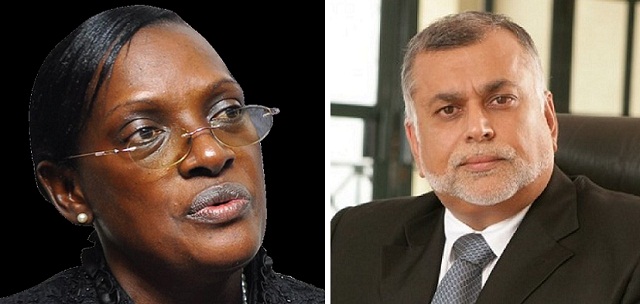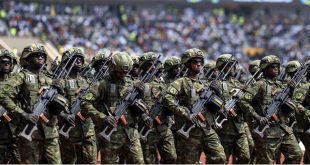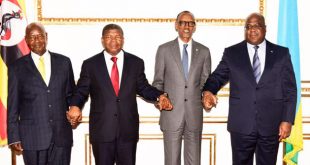
Four years after GTB’s closure, the central bank had not prepared that report at the time of audit. “Hence I was unable to establish the status of the assets and liabilities at closure to-date,” the AG notes.
But the AG’s review of the GTB closure and sale documents, threw up other red flags.
“I observed that there were no guidelines/regulation or policies in place to guide the identification of the purchasers of defunct banks,” the AG writes, “In the absence of guidelines of the sale of banks, there is a risk that bank assets may be sold at a loss arising from conflict of interest between BOU staff and the potential buyers.”
The revelations by the AG about defunct banks and his warning against loss arising from conflict of interest could not have been timelier. In our previous issue, The Independent reported that the taxpayer stands to lose billions BoUinjected into the Crane Bank before taking it over and handing some of its assets to DFCU. The deal has resulted in court battles it is currently embroiled in over alleged conflicts of interest and other wrongdoing.
The Auditor General did not audit the takeover of Crane Bank because the BoU management did not avail the requisite documents on the same citing court cases over the banks and the subjudice rule. The same applies to Teffe, GTB, and NBC.
But the issues the AG raises on BoU’s handling of other liquidations and takeovers appear to mirror concerns currently being raised about its closure and sale of other banks; especially Crane Bank.
The central bank is being sued over acquisition of Crane Bank from tycoon SudhirRuparelia and sale of some of its assets and liabilities to DFCU Bank.
The same DFCU Bank, which purchased assets and liabilities of GTB, has just announced a profit growth to Shs127 billion up from Shs23 billion the previous year mainly as a result of a similar deal with BoU over Crane Bank.
Sudhir’s lawyers raise this as part of the evidence that the assets of Crane Bank, which they put at Shs1.3trillion were undervalued before being sold to DFCU for Shs200 billion.
In defence of the central bank, Deputy Governor Louis Kasekende, who was at the centre of the transaction has said that this kind of thinking betrays a lack of understanding of the means through which failed banks are resolved by bank regulators.
“It has been alleged that Crane Bank was sold by BoU for a fraction of the value of its assets, ignoring a fact that a bank has liabilities, such as deposits, as well as assets,”Kasekende said on April 6, “When Crane Bank was resolved by the BoU, the value of its assets was much less than the value of its liabilities. Consequently, Crane Bank had a negative net worth of approximately Shs.260bn; it was insolvent.”
He added: “BoU did not sell Crane Bank, because no one would have bought a bank with a negative net worth of this magnitude. Instead the BoU carried out a purchase of assets and assumption of liabilities transaction (P&A) with DFCU. DFCU assumed most of the liabilities of Crane Bank, including all of its deposits and acquired assets of equivalent value. The remaining assets and liabilities not transferred to DFCU have been put into the liquidation process”.
Kasekende does not mention that several investors had, in fact, expressed interest in buying Crane Bank as a business or as assets and liabilities. The Independent has interviewed some of them and they say BoUfrustrated their efforts instead of supporting them.
Kasekende is the first BoU official to give a public defence of the BoU-DFCU deal over Crane Bank.
The Governor, TumusiimeMutebile has barely spoken about issues of Crane Bank recently. But in an interview with Daily Monitor in August last year, Mutebile said while he would take responsibility for what went wrong with Crane Bank, he was not criminally culpable.
When asked who was, Mutebile replied: “Ask the (BoU) executive director for supervision (Justine Bagyenda, the former Executive Director Bank Supervision)”.
In the case of conflict of interest the AG is warning about, in the Crane Bank saga, Court last year threw out MMAKS and Bowmans, the lawyers who advised BoU over the transaction over conflict of interest.
 The Independent Uganda: You get the Truth we Pay the Price
The Independent Uganda: You get the Truth we Pay the Price


